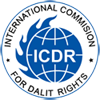
Baseera Rafiqi
Baseera Rafiqi is an independent journalist working in the Kashmir region of India for the past seven years, focusing on gender issues, child abuse, health, and the environment. She was invited to work as a fellow with ICDR International. She has contributed to various national and international dailies. She was also awarded as the Media Fellow by Save- The Children in 2016, Fellowship with Youth Ki Awaaz, and fellow with the United Nations Women Network for female journalists of South Asia. Academically she holds a master’s degree in Communication and journalism. Fellowship Project with ICDR International
The current project under the guidance of ICDR was taken up in August 2021 for a period of four months. Baseera, in her project, reflects upon the experiences she had while completing her project. Baseera shares her experience with transgender people in Kashmir, India, who are increasingly visible in both popular culture and in daily life, but still face severe discrimination, stigma and systemic inequality. They tend to live in separate settings as they are barely accepted by their families or society. The abuse is still prevalent and it continues from birth till death. Furthermore, lack of education, employment, and skill set is a major drawback for them and Covid-19 has aggravated their condition. As a community they see no future whatsoever. As a journalist, she observes that there are many things that need to change apart from mindset. Governments and social workers need to work in close association with them, helping them to register for schools, work on skill development and employment issues.
She says “I happened to meet them in their homes, and they welcomed me with open hearts and a hot cup of tea. As we began interacting they opened up gradually, first talking about their profession as matchmakers, singers and performers; showed me their glittery clothes, makeup and some performance videos. And then the other side of their life struggles –abuse. This for them is an essential component in their lives. ‘Pain’ connects them with each other and they share a strong bond beyond any expectations.
Generally they shy away from people with a mike and a camera but I was lucky enough. During this time I met with a group of transgender who happen to be a little media friendly. They spoke about their traumatic experiences from early childhood days to present. They tend to live in separate settings as they are barely accepted by their families or society. Their journey of abuse starts from a very early age and continues to their graves. It was a difficult task to hold on to your emotions while listening to their tumultuous survival stories both physical and mental. As a community they come to each other’s help as they know they hardly matter for others-death and disease. They are the only one’s present in their funerals as well. Lack of education, employment and skill set sidelines them further and Covid-19 has aggravated their condition.”

Rakesh Chaudhary
Rakesh completed his Diploma in Online Journalism from Nepal Press Institute in 2014. He is currently working as a freelance journalist writing for Gorkhapatra daily, madheshvani etc, Rakesh has extensive experience working in Image channels (TV,FM)Nepal FM Network, Online news service as a reporter and editor. He has previous also worked as a reporter/ copy editor of dalit feature service in Nepal.
Rakesh is a freelance multimedia investigative journalist in Nepal. He covers and reports on a range of issues related to dalit rights,untouchability, discrimination, inter country migration, gender, religion, women’s rights, children, health, education, environment, corruption, and freedom of information. Rakesh has also been recognised by many organizations with national and international fellowships, research writing and prizes.
Rakesh’s fellowship project with ICDR International is about the marginalized dalit Musahar community access in education and politics (Access to justice) in Indo-Nepal border are. His findings indicate that the literacy rate in the community is much lower and continue to face discrimination including untouchability. Musahar have no land for settlement and no employment. Due to poverty in both countries, India and Nepal, Musahars continue to migrate for labor work.
Rakesh concludes that the musahar are most vulnerable and marginalized community in Nepal and India. There has been no significant plan for uplift political (government representation reservation) and economic empowerment for Musahar. Social and political discrimination creates conflicting situation in Nepal and India.
